China’s Social Media Maestro
Charles Chao, MPA ’93, talks about his persistently pursued path to the top job at one of China’s biggest online media companies.
By Todd Savage
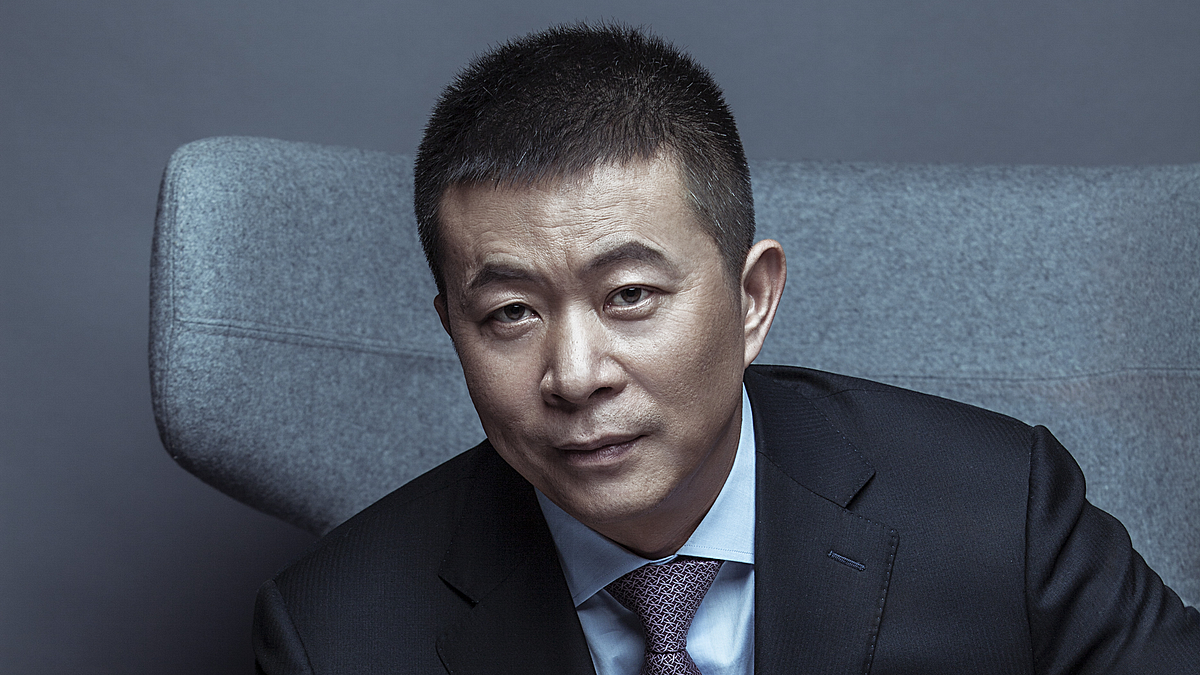
Charles Chao was 24 years old when he landed in the United States for the first time. The year was 1990 and the World Wide Web had just been invented. He was more than 7,000 miles away from home, about to begin graduate school in journalism at the University of Oklahoma in Norman. He had left behind a job as a TV reporter in Shanghai, China’s fast-growing city, where he had attended a top high school and gone on to the country’s best journalism school.
Little did he imagine that his next stop would be business school at The University of Texas at Austin and a path that would lead him to the C-suite at one of China’s most prominent tech companies.
In 1993, after getting a master’s degree in public accounting at UT, the top-rated program in the country, he was hired by Arthur Andersen in Silicon Valley for an auditing job. Two years later, he took a position with PricewaterhouseCoopers as an audit manager, working primarily with tech clients.
“At that time, Silicon Valley was in a boom stage,” Chao says, speaking by phone from Beijing. “There were a lot of new companies, a lot of activity, a lot of new technologies coming out, and a lot of IPOs and M&A activities. I was getting experience in the high-tech business and the financials behind it. That helped me to learn very quickly and get a real understanding of the industry.”
In 1999, Chao was well-placed for his next career move, a job that would combine all his skills and experience and take him back to China. The online media company Sina Corp., considered at the time a kind of “Chinese Yahoo,” was struggling with a new IPO and brought him aboard as vice president of finance. With his help, the company became the first Chinese internet company to be listed on the Nasdaq.
“They wanted to have somebody with U.S. experience to help them in the process,” Chao says, “and I was the one who was hired.”
The job was the start of what has been an 18-year tenure at Sina and a rise through the ranks. He became CFO and then COO as his role overseeing portal operations expanded. He says watching a succession of three others in the CEO role helped prepare him when the time came to ascend to the top job in the company. In 2006, he was named CEO and in 2012, chairman of the board.
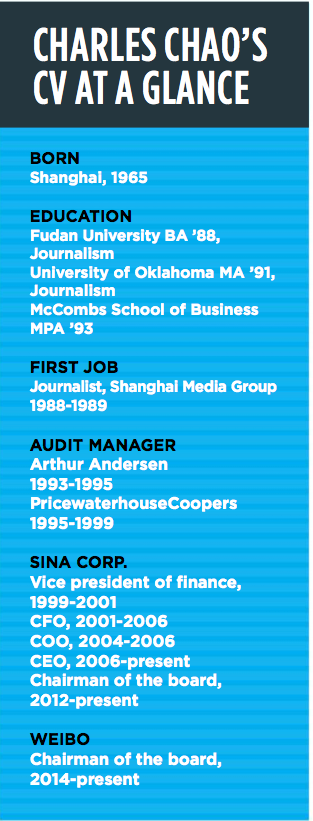
Chao has been listed as one of China’s most powerful people, a star in the nation’s business world. He was recognized by Time as one of the world’s 100 most influential people and one of “Ten Big-Hitting Asian Businessmen Under the Age of 50” by Forbes. Sina is one of the first Chinese companies to set up a charity and a public welfare platform.
Under his leadership, the company has expanded its influence and launched what has become one of the most dominant social media platforms in China — and one of the biggest in the world. Started in 2009, Weibo is a digital network that combines many of the features of both Twitter and Facebook. By the second quarter of this year, it reported 361 million monthly active users (and about 159 million daily users) in China, a growth of nearly 30 percent over the previous year. That makes Weibo (pronounced way-bwo and translated as “microblog”) bigger than Twitter, which is banned in China along with Facebook and many other Western internet outlets.
“I was getting experience in the high-tech business and the financials behind it. That helped me to get a real understanding of the industry.” — Charles Chao
Chao has served as CEO for 11 years now, and it has been a time of rapid change in the way people get and share information.
As CEO, he oversees both Sina Corp. and its subsidiary, Weibo. Sina now has a market cap of about $8–9 billion, and Weibo is valued at $20 billion. Both are listed on the Nasdaq.
“It’s an internet business, but it also has a lot to do with content and the media,” Chao says. “I’d say my media background helped me to understand this business much better than a lot of other people would. At the same time, my financial background helped me to be able to set up the right structure, strategy, and financial model for the company. In some ways, Sina is a perfect fit for me.”
The rapid changes in the tech world — from emerging competitors to new technological advances like video, new ways of sharing content, and artificial intelligence — have required Chao to be nimble. In recent years, the company has sought to fend off competition from Tencent’s WeChat messaging platform (similar to WhatsApp) by adding live streaming and its own mobile payment functionality.
“In our business, there is always a lot of challenge, a lot of risk,” he says. “We always worry about new competition and new technology. New products will overtake this big product. That’s always the case, so we have to keep innovating, to grow bigger and move faster with those innovations. For our business in particular, we are already very large-scale in China in terms of our user base and our activities. How to keep growing our business, how to keep growing our user base, is a challenge.”
Chao made one of the boldest moves himself to show his faith in the company’s future. In 2015, he acquired 11 million newly issued shares in Sina valued at $456 million. He believed the company’s stock was undervalued and placed his own optimistic bet. “I wanted to show my confidence in the company,” he says. “And it also gave our employees a lot of confidence in pursuing future business.” The risky move got the attention of investors, and shares surged.
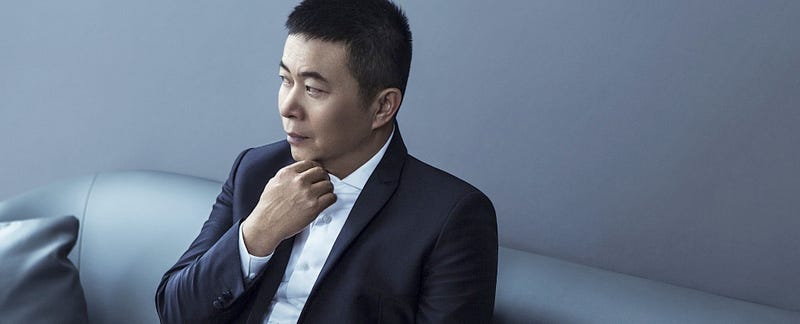
Weibo has opened up new ways of communicating in a traditionally closed society in which the government pays close attention to the flow of information. Chao reflects on the fact that back when he was a student, there were fewer ways of getting information in a closed society.
“It allows everybody who has a mobile phone, who has a PC, to share content and engage in a proper discussion of a lot of social matters,” Chao says. “That has changed a lot of things, made the society much more transparent, and has engaged public sentiment. You can imagine what kind of impact that has on China or any society.”
Like other Chinese internet companies, Weibo monitors what users can post with its own internal system to vet what is shared online in a way that meets government standards. Users who violate its standards, such as publishing “fake news” or slandering people online, can lose their account.
While the Chinese government is often criticized for censoring media, Chao argues that Facebook, in the aftermath of the 2016 election campaign, has played catch-up as it has sought to beef up its own internal monitoring of so-called “fake news.” “We have been doing that for many years,” Chao says.
He argues that this type of new media requires more order and regulation. “All that cannot just be maintained or governed by the existing laws and regulations. It needs to be managed. The platform should have the system and mechanism to manage people’s behavior and how content is created and distributed.”
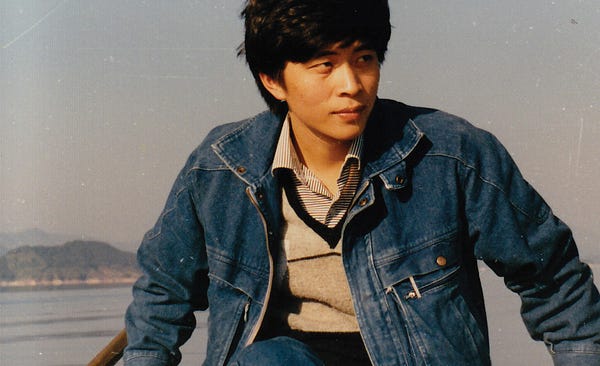
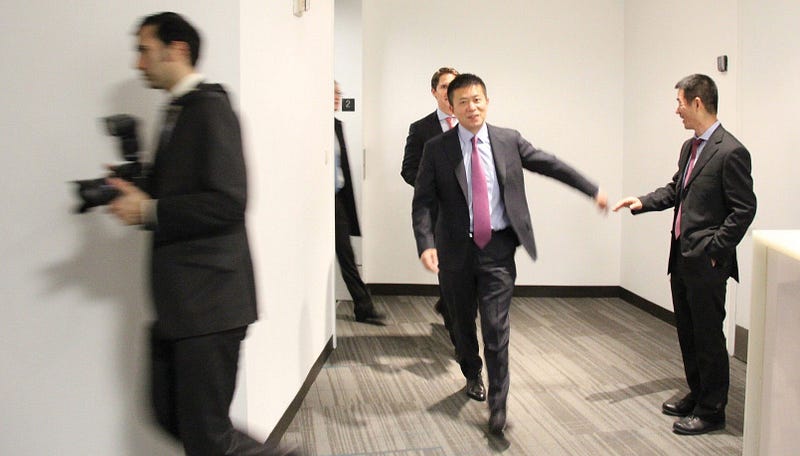
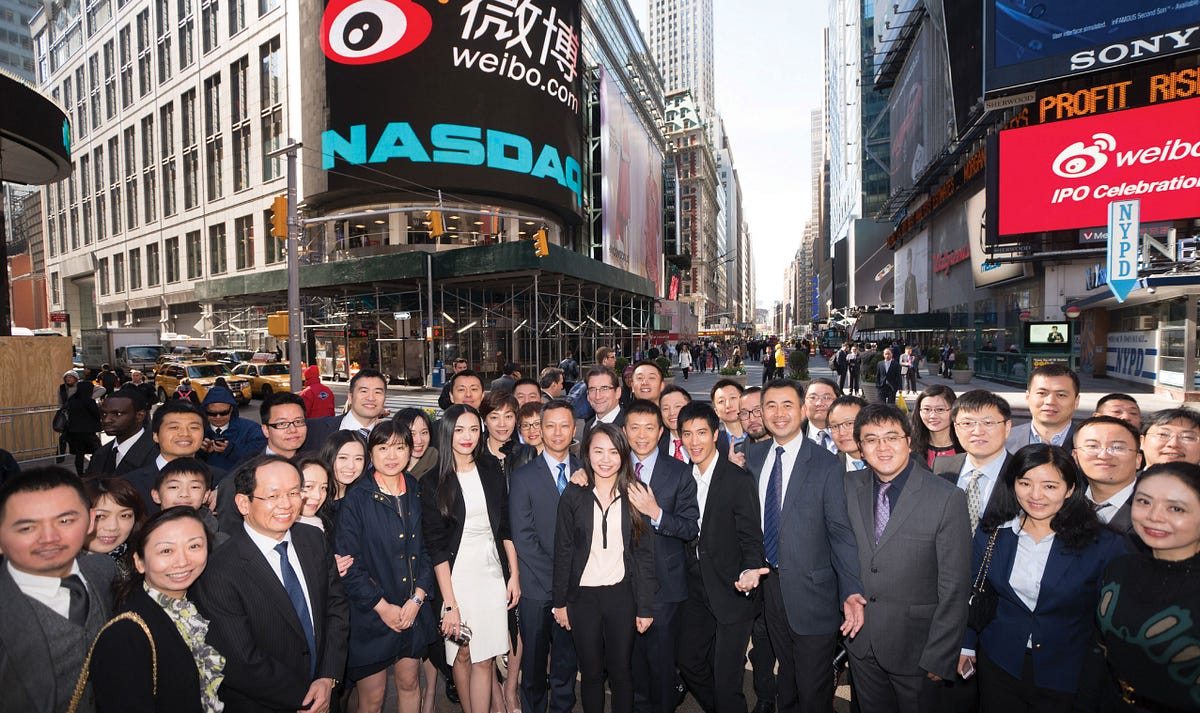
What issues does he see Sina facing, beyond the critical issues of technology, cybersecurity, and competitive challenges?
“Sina was a portal company. We were able to develop a social media business within our portal business. They’re actually quite different. We created a new model from an old model, and that’s difficult to do. That’s very rare. Going forward, of course, Weibo is a success. But Sina itself is in the process of transforming into more of a mobile business. In the process, there are challenges. It’s a very different world with a lot of new competitors. Whether we are able to compete on the mobile stage for the news business is a challenge for us, and we are working very hard on that.”
In many ways, China is ahead of the U.S. in mobile, he says. Mobile penetration is higher, and as a result, the ways people use their mobile phones is more varied. Namely, mobile payment is much more widespread, allowing more innovation in business models. “A lot of people have begun to live in a cashless society in China. They need not carry cash. They don’t need to carry credit cards. They carry a mobile phone to get around in many cities.”
Chao’s career, straddling two sides of the Pacific, has given him insight into the challenges of working in different countries and cultures. He advises U.S. businesspeople looking to operate in the Chinese market to have an open mind in such a different market.
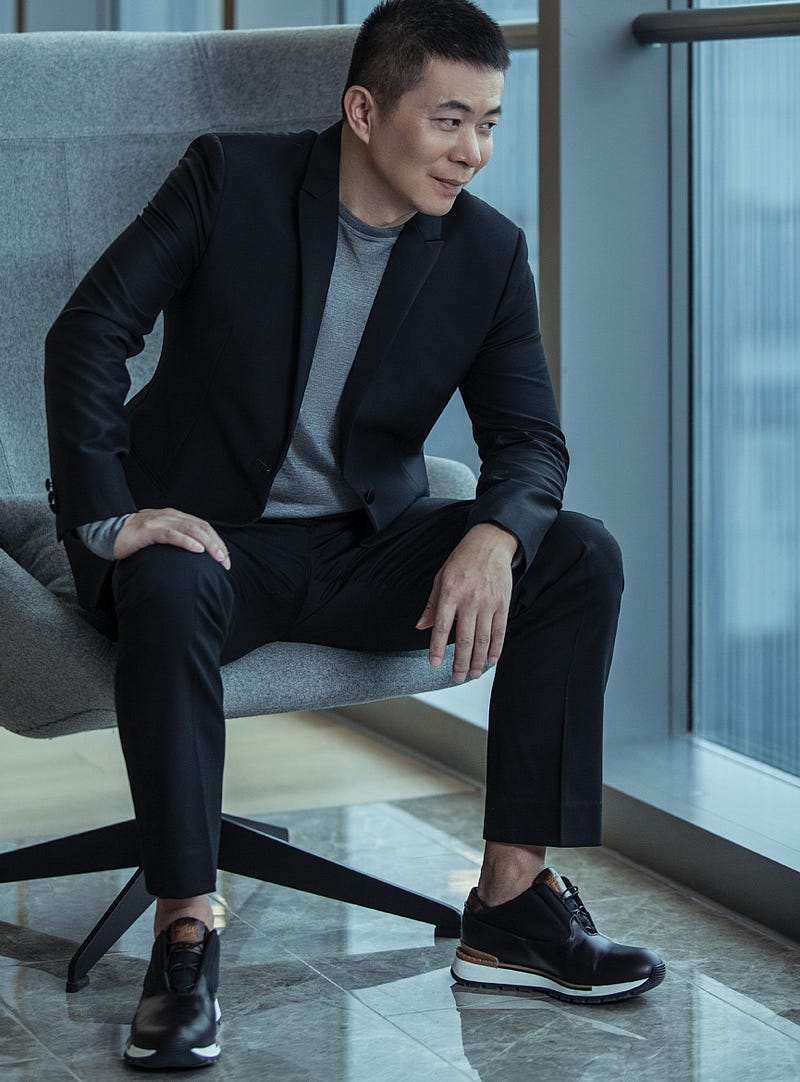
“In the internet business, a lot of U.S. giants operating in China have failed,” he says. “A lot of people blame the country or the government. That’s a small element of it. Mostly, it’s because they use U.S. experience to operate in China. In some ways, the Chinese market is different and even bigger than the U.S. market, and so you have to have a local strategy, local marketing, a local product, and a local operation to sell that. Using your experience in the U.S. probably would not work.”
The world is certainly a different place than it was when Chao was a student, arriving on a plane without the benefit of social media to connect him to home. It has been a time of uncertainty about the future of relationships between the two countries where he was educated.
“We all hope that these two countries can work together very closely and remain friendly so the world will be in peace. It’s going to be a very bad situation for the world if they fight each other.
“There’s a lot of mutually beneficial cooperation. Each has different strengths, and they are complementary to each other. The relationship between China and the U.S. is the most important bilateral relationship in the world.”
UT’S GLOBAL AMBASSADORS: HELPING CREATE CONNECTIONS ACROSS THE WORLD
- CHARLES CHAO IS ONE OF A DOZEN prominent international influencers helping to raise the global profile of UT Austin. They were invited to join a new International Board of Advisors established this year by UT Austin President Greg Fenves. He asked for their expertise in developing and implementing an international strategy to expand the university’s global reach and impact.
- “WHILE OUR BRAND IS RECOGNIZED across the continents,” Fenves explains, “we must be intentional in threading global engagement through our mission and vision to assure our students’ confidence and awareness in a multicultural world, while expanding our competitiveness as a top research university.”
- FENVES MET CHAO LAST YEAR when visiting China. “I’m always willing to contribute my experience, my influence in this part of the world to the school,” Chao says. “The world has become more connected in many ways. So if you want a university that is more advanced, more globally oriented, you need to have international exposure. I hope I can do something that helps and will benefit the school and the university.”
- THE BOARD GATHERED at UT for the first time in September. The board members, all but one of whom are UT alums, represent diverse industries, including energy, media, investments, humanities, and technology, and have distinguished records of community service and roots stretching across Asia, Europe, Africa, and the Americas.
MEMBERS OF UT ’S INTERNATIONAL BOARD OF ADVISORS
CHRISTOPHER P. BAKE, BBA ’88
London, U.K., Head of Origination, Vitol Group
JULIET BERKOWITZ, BS SPEECH COMMUNICATION ’86
New York City, New York, U.S., Fashion Industry Professional (retired)
WILLIAM BOLLINGER, BBA ’78, MBA ’80
London and Singapore, Chairman, Judico Capital Pte. Ltd., Co-founder, Egerton Capital (UK) LLP
CHARLES CHAO, MPA ’93
Shanghai, China, Chairman and CEO, Sina Corp., Chairman, Weibo Corp.
MICHAEL HOFFMAN, BA GOVERNMENT ’68
London, U.K., Chairman, Hoffman Ventures,IBA Chair
GWEN HOUSTON, JD/MPAff ’85
Seattle, Washington, U.S., Chief Diversity and Inclusion Officer, General Manager of Diversity and Inclusion, Microsoft Corp.
TAE HAN KIM, MS CHEMICAL ENGINEERING ’86, PH.D. ’88
Seoul, South Korea, CEO, Samsung BioLogics Co. Ltd.
JA-KYUN KOO, PH.D. ’90
Seoul, South Korea, Chairman and CEO, LSIS Co. Ltd.
HENNING KREKE, BBA ’89, MBA ’90
Hagen, Germany, Chairman, Douglas Holding AG
PENG ONG, BS ELECTRICAL ENGINEERING ’86
Jakarta, Indonesia , Co-founder and Managing Director, Monk’s Hill Ventures
ADRIANA PACHECO ROLDÁN, PH.D. IBERIAN AND LATIN AMERICAN LANGUAGES AND CULTURE ’15
Puebla, Mexico; and Austin, Texas, U.S., Scholar and Community Advocate
CARLOS QUINTANILLA, CORNELL MBA ’80
Monterrey, Mexico, President and Owner, Quintanilla, Hache Y Asociados (QHYA)
From the Fall 2017 issue of McCombs, the magazine for alumni and friends of the McCombs School of Business.


